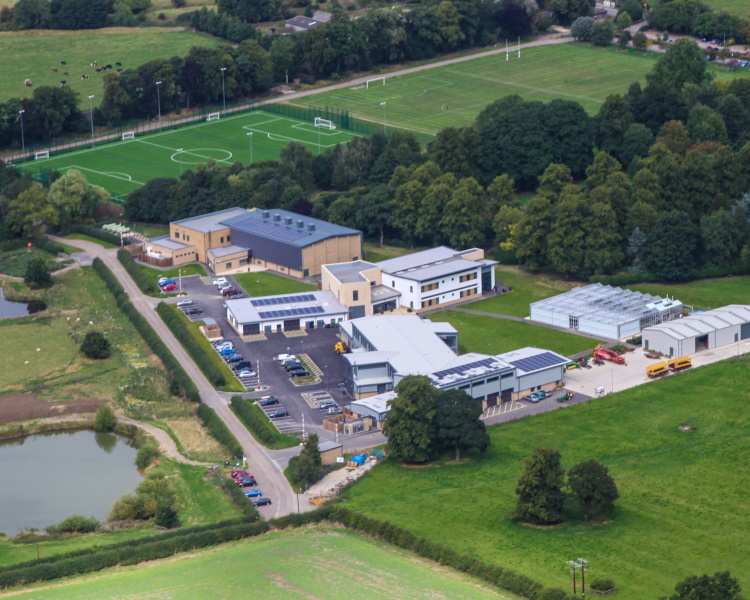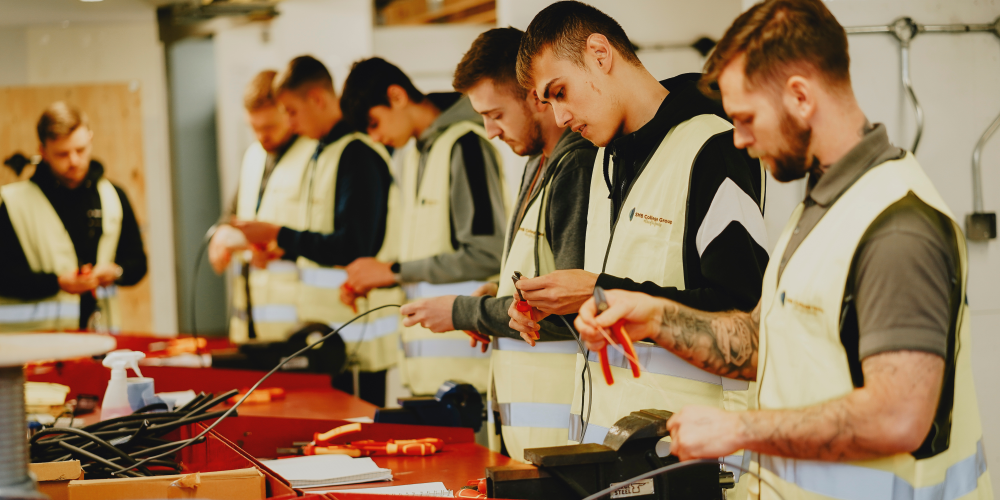They may contribute to the design of electrical systems. They are able to set out jobs from drawings and specifications and requisition the necessary installation materials.
Electrical safety is an important area of Electricians' work. On completion of their work the electrical systems must be safe to use. They must adhere to safe working practices without endangering themselves or others.
Installation Electricians work on the installation, testing, commissioning and maintenance of low voltage electrical and electronic devices and appliances.
Maintenance Electricians work on the maintenance of electrical and electronic installations including automated production systems. Duties include the supervision of the equipment, its maintenance and necessary repairs.
- What will I learn?
Understand Health, Safety and Environmental Considerations
Understand How to Plan and Oversee Electrical Work Activities
Understand Design and Installation Practices and Procedures
Understand Terminations and Connections of Conductors
Understand Inspection, Testing and Commissioning
Understand Fault Diagnosis and Rectification
Electrical Scientific Principles and Technologies
Understand the Requirements for Electrical Installations
Mandatory Performance Units:
Apply Health, Safety and Environmental Considerations
Organise and Oversee the Electrical Work Environment
Terminate and Connect Conductors
Inspect, Test and Commission Electrical Systems
Apply Fault Diagnosis and Rectification
Pathway NETBI ? Installation Optional Performance Unit:
Apply Design and Installation Practices and Procedures
Pathway NETBM ? Maintenance Optional Performance Unit:
Apply Practices and Procedures for Maintenance
- How will I learn?
Our industry experienced staff will share with you their knowledge and experience of working in the electrical sector. They will use many different types of exciting interactive teaching methods to ensure your preferred method of learning is covered. You will experience classroom-based learning as well as workshop-based learning on industry standard equipment.
- How will I be assessed?
The main assessment of your apprenticeship will take place at the end of your apprenticeship as a formal assessment, this is in the form of an AM2s test which is taken off site. Assessments will also take place when your Assessor/Trainer visits your workplace. They will help you identify suitable work evidence to collect, observe your performance, give guidance when writing personal statements, carry out professional discussions and give you feedback on how you have met the learning outcomes and evidence requirements. At each visit, the Assessor/Trainer will agree and record an action plan with you and provide you with written feedback.
- Where could this course lead to?
On completion of Level 3, the progression is onto the 18th Edition Wiring Regulations, Inspection and Testing, Portable Appliance Testing, Design and Verification of Electrical Installations or Electrical Engineering HNC/D.
- What qualifications or experience do I need?
Minimum prior qualifications required (specific to this course as set out by awarding body requirements): Access to Building Services Level 1 or Level 2. Minimum prior qualifications required: GCSE Grade 9-5 Maths and English (certificates to be seen by lecturer and Functional Skills tutors for exemption purposes). You will also need a job in the sector in which you have a contract of employment.
- How long is the course?
The course is planned over 42 months, in addition 3 months for the EPA phase.



